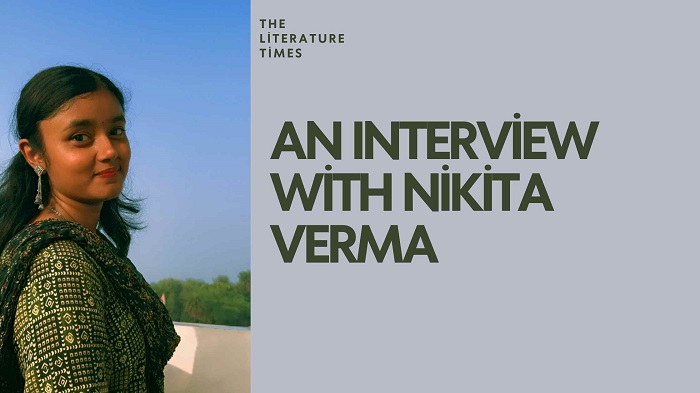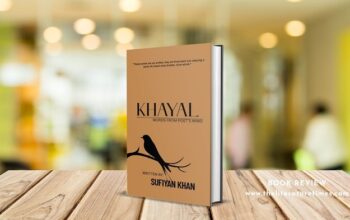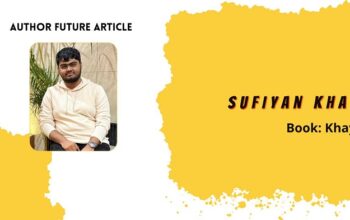Nikita Verma, a 21-year-old author and literature student, writes with a rare blend of lyrical beauty and emotional honesty. Known for her heartfelt poetry and deeply evocative narratives, she explores love, time, and memory with tenderness. Before He Writes Me is her most personal work, leaving readers with feelings they cannot forget.
The Literature Times: What inspired you to combine time travel with poetry in Before He Writes Me?
Nikita Verma: Poetry has always been my first language of expression. It holds emotions in a way nothing else can. When I thought of writing about love across impossible boundaries, time travel felt like the right canvas. It allowed me to explore what it means to love someone you can’t fully reach, and poetry became the bridge between their worlds.
The Literature Times: Aaravi lives in a future devoid of emotions. Do you think modern society is also moving in that direction?
Nikita Verma: In some ways, yes. We’re surrounded by technology that connects us, yet at the same time, we’re drifting further away from feeling deeply. I think many of us are scared of vulnerability. Aaravi’s world is just an amplified version of what I fear, one where emotions are seen as a weakness, not a gift.
The Literature Times: How did you approach writing Vivaan’s poems so that they feel authentic to his voice?
Nikita Verma: I wrote his poems as if I were writing letters to someone I could never send. I wanted his words to feel raw, imperfect, and very human. Vivaan’s voice isn’t about polished poetry, it’s about honesty. That’s what makes his poems feel alive.
The Literature Times: Was there a personal experience or memory that shaped the emotional depth of this story?
Nikita Verma: Yes, many moments of loss and longing in my own life quietly shaped this book. I’ve known what it feels like to want to hold onto someone or something that time insists on taking away. Writing this story was my way of giving shape to those unspoken emotions.
The Literature Times: If given the chance, would you personally choose to change fate for someone you love, even at great cost?
Nikita Verma: I think love makes us reckless enough to say yes. But deep down, I also believe that some things are meant to happen, no matter how much we try to alter them. Maybe the real question is, would changing fate still give us the love we wanted, or would it take away its meaning?
The Literature Times: How do you balance your identity as both a poet and a novelist while writing?
Nikita Verma: For me, poetry and prose aren’t separate, they flow into each other. When I write novels, my poetic voice seeps in through imagery, rhythm, and the emotional undertones. And when I write poems, they sometimes carry a story within them. It’s less about balance and more about letting them coexist.
The Literature Times: What do you hope readers will carry with them after finishing Before He Writes Me?
Nikita Verma: I hope they carry a reminder that love is timeless, that even when it ends, it leaves echoes inside us. And I hope they remember that sometimes, what matters most isn’t how long love lasts, but how deeply it changes us.
The Literature Times: Time travel often comes with paradoxes. How did you ensure your narrative remained emotionally believable despite bending logic?
Nikita Verma: I focused less on the mechanics of time and more on the emotions it carried. The heart doesn’t care if time makes sense, it only knows what it feels. By grounding the story in emotions instead of technicalities, the paradoxes didn’t feel like loopholes, they felt like part of love’s mystery.
The Literature Times: As a young author, what challenges did you face while writing such a complex and emotional story?
Nikita Verma: The hardest part was carrying the weight of so much emotion while writing. There were chapters that left me drained, almost grieving with the characters. Another challenge was trusting my voice, that I could take a concept as big as time travel and make it deeply personal.
The Literature Times: What does the title Before He Writes Me mean to you personally, and how does it reflect the essence of the book?
Nikita Verma: To me, it captures the ache of being known by someone before they even meet you. Aaravi falls in love with Vivaan through the words he hasn’t written yet, and Vivaan unknowingly writes her into his heart. The title is both a promise and a farewell, it’s about love that exists in the fragile space between time and memory.



